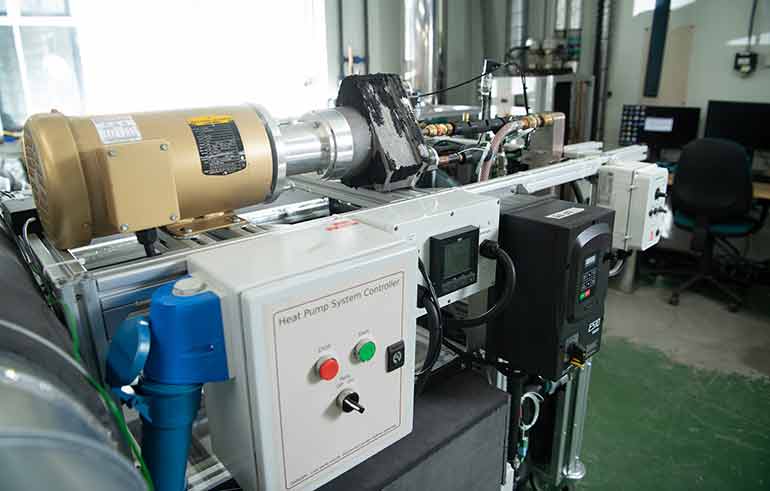Flexible heat pump offers increased efficiency
3rd August 2022
UK: Researchers from the University of Glasgow have developed a new type of flexible heat pump with integrated heat storage.
In a new paper, published in the journal Communications Engineering, the researchers outline how their flexible heat pump technology provides an elegant and low-cost solution to the problems of current heat pumps by integrating heat storage – a small water tank and a coil of copper tube.
The water tank recovers some excess thermal energy produced during the heat pump’s operation, and stores it as an additional heat source for the heat pump’s operation later.
The recovered heat can be reused as a temporary heat source, substantially reducing the pump’s power consumption. For air-source heat pump applications, the recovered heat stored in the water also allows the flexible heat pump to run continuously during defrosting.
A working prototype using off-the-shelf components has shown their design to be around 3.7% more efficient than current design with a relatively low heat supply temperature of 35°C.
When the supply temperature increases, so does the amount of energy recovered, improving the system’s efficiency and saving more power. The team’s analysis predicts that, after optimisation, it could be up to 10% more efficient than current products when the heat supply temperature increases to 65°C.

“The advantages of the flexible heat pump against current heat pump products is analogous to the advantages of condensing boiler against the non-condensing boiler – both recover excess heat to greatly improve efficiency,” commented Zhibin Yu, professor of thermal energy at the University of Glasgow’s James Watt School of Engineering, who led the research and development of the flexible heat pump.
“Our flexible heat pump solves many of the problems with the current generation of heat pumps, making them capable of delivering improved performance while using less power. The cost of a small water tank heat storage is marginal, but the power saving is significant. It can be widely applied for all kinds of the heat pump applications.
“Now that we have acquired a patent on the technology and proved the concept in laboratory, we’re keen to start working with manufacturers, energy suppliers and other partners to take the first steps towards putting these next-gen heat pumps into homes in Britain and around the world,” he added.
Professor Yu and his team are currently seeking collaborators to take forward the development of their flexible heat pump technology.







